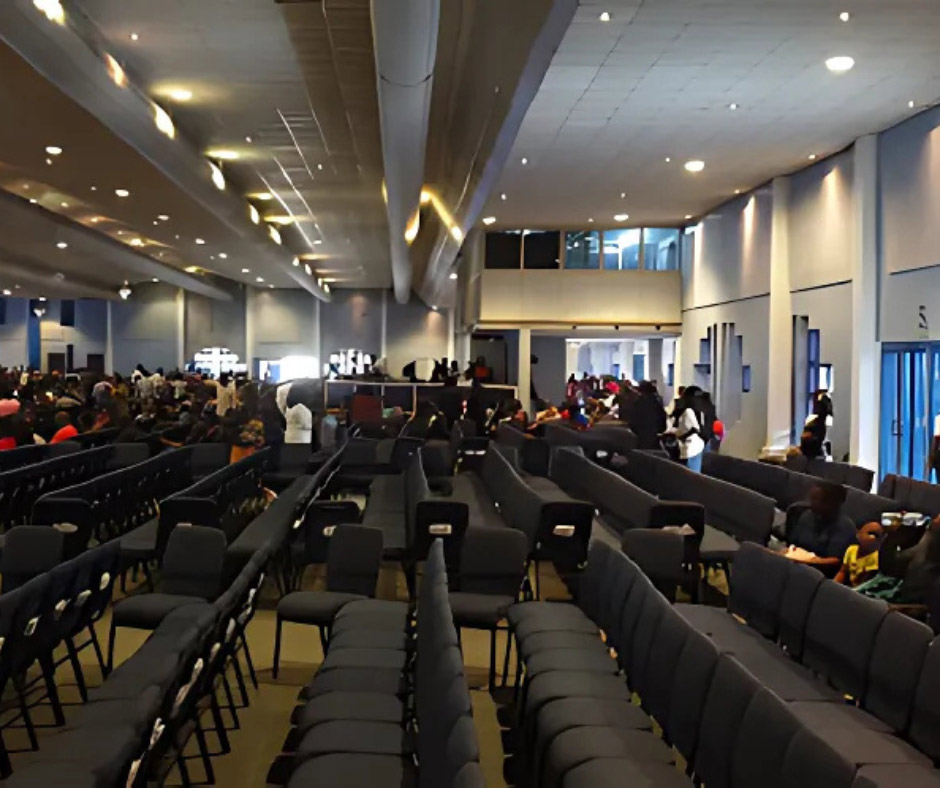On a warm Thursday morning, the courtyard of Daystar Christian Centre in Ikeja is humming with activity—but not for a worship service. Instead, dozens of young entrepreneurs have gathered for a business incubation seminar, part of a larger economic empowerment initiative run by the church’s Daystar Business Academy. The focus: equipping Christians with practical tools for financial independence.
“We believe poverty is not only a social challenge but a spiritual burden that the Church must confront,” says Pastor Sam Adeyemi, senior pastor at Daystar, in an interview with Glorify Times. “Jesus taught stewardship and productivity. What we’re doing is discipling the marketplace.”

Across Nigeria, churches like Daystar and House on the Rock are evolving into platforms not just for spiritual nourishment but also economic empowerment. Their business mentorship programs, micro-loan schemes, and digital literacy workshops are helping thousands navigate an economy battered by inflation, youth unemployment, and structural inequality.
This model of “marketplace missions” isn’t new, but it’s gaining urgency in light of Nigeria’s worsening economic climate. According to the Nigerian Bureau of Statistics, youth unemployment stood at 40.8% in 2023. With the Naira’s devaluation and persistent inflation, survival in cities like Lagos or Port Harcourt increasingly demands more than just faith—it requires financial acumen.
Many churches are responding with a fresh emphasis on what some call a “theology of productivity.”
“We can’t just preach prosperity; we must teach people how to create it,” says Dr. Emeka Okoye, a Christian economist and advisor to multiple Pentecostal networks. “For African churches, this is a turning point—our theology must be practical.”
At House on the Rock in Abuja, a Saturday workshop called Build to Last draws hundreds of budding founders monthly. Led by seasoned Christian entrepreneurs, the sessions focus on product development, marketing, and resilience in the face of failure.
One such entrepreneur, Ifeanyi Opara, launched his agri-tech startup after a church-hosted innovation boot camp. Today, he employs 15 people. “My pastor didn’t just lay hands on me; he helped me build a business plan,” he jokes. “We’re reclaiming the marketplace for God.”
Similar stories are unfolding in rural Nigeria, where smaller churches are pooling tithes to create communal microfinance initiatives. In Ogun and Osun states, cooperatives are helping women access small loans for farming and crafts, creating economic ripple effects across their villages.
But do these church-led ventures actually work? Evidence suggests they do. In a 2024 report published by the Centre for Faith and Public Policy in West Africa, 68% of respondents who participated in church-based business trainings reported improved income and household stability within six months.
“These aren’t handouts. They’re hand-ups,” says sociologist Tola Fashola, who helped compile the study. “And they’re fostering community resilience in a way that government programs often fail to.”
Of course, questions of financial accountability and transparency persist. Critics argue that without regulatory oversight, such programs may risk becoming insular or even exploitative. But some churches are taking the lead on governance too. House on the Rock, for example, runs its entrepreneurship program under a registered nonprofit audited annually.
What does this mean for the future of African Christianity?
Observers say this trend signals a theological evolution—from pulpit-centered ministry to integrated community development. “The African church has always been a social institution,” says Dr. Okoye. “But now it’s becoming an economic one, too.”
Pastor Adeyemi agrees. “We’re not just raising church members,” he says. “We’re raising kingdom builders—people who will change the economy from the inside out.”







